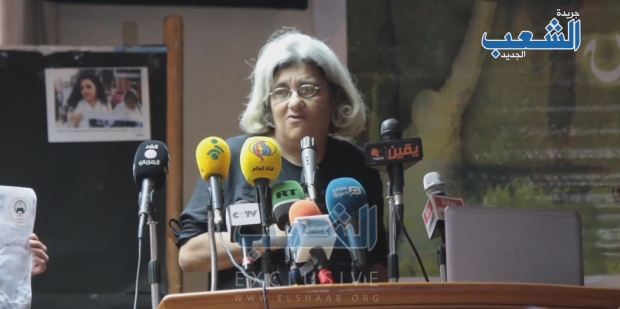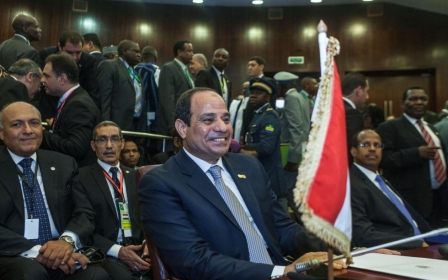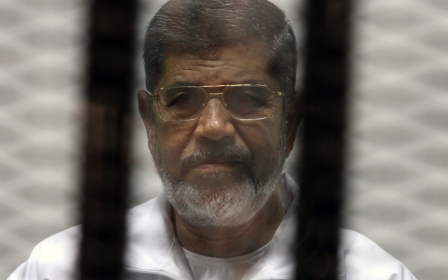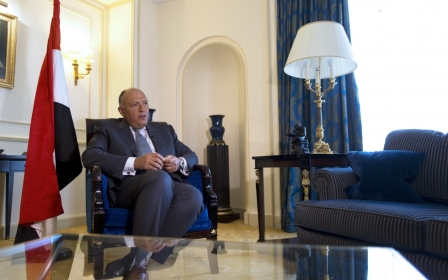Egypt activists join mass hunger strike against 'draconian' protest law
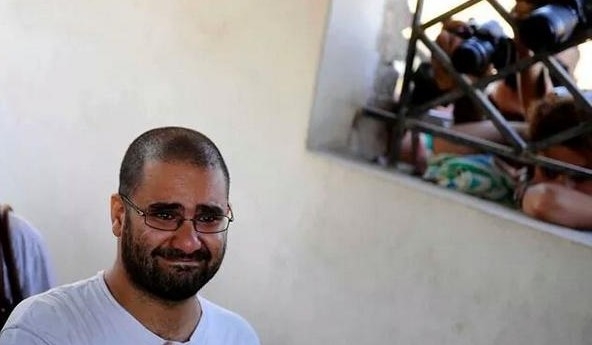
Sixteen Egyptian activists have begun an open-ended hunger strike at the headquarters of the state-run National Council for Human Rights to protest legislation barring demonstrations and peaceful assembly.
Mamdouh Gamal, a spokesperson for the striking activists, said on Monday that he and his colleagues had begun the strike on Sunday with the aim of seeing the protest law reversed, overturning court rulings based on it, and releasing activists imprisoned for violating it.
The 16 activists bring to 91 the total number of people who have joined hunger strikes to protest the law – this number includes 59 people who are in jail for violating the legislation.
Gamal and some other activists were earlier sentenced to jail in absentia for breaching the law, but they were subsequently cleared of wrongdoing after successfully petitioning for a retrial.
In a statement, the activists said that after attending a meeting at the National Council for Human Rights, they had decided to stay in the building and continue their hunger strike "until every single demand is met."
The announcement of the open-ended hunger strike comes just 72 hours before an Egyptian court is set to retry political activist Alaa Abdel-Fattah and 25 other activists charged with violating the law outside Egypt's Shura Council in downtown Cairo late last year.
The activists had gone to the site to protest against the law, but the rally turned violent when police used water hoses to disperse demonstrators.
Abdel-Fattah’s mother on Friday announced that she and her daughter had begun an open-ended hunger strike, protesting at what she called the “injustice” her son was facing.
Mohamed Abdel-Baqi, a spokesman for the self-styled "Revolution's Road Front” said the activists believed their hunger strike – or what he called the "struggle of empty stomachs" – would be an effective way to bring the law down.
The law was issued in November of last year and has remained the object of criticism ever since.
Human rights group Amnesty International on Sunday dubbed the law “draconian”, accusing authorities of bringing in the law “to suppress criticism and opposition.”
Middle East Eye propose une couverture et une analyse indépendantes et incomparables du Moyen-Orient, de l’Afrique du Nord et d’autres régions du monde. Pour en savoir plus sur la reprise de ce contenu et les frais qui s’appliquent, veuillez remplir ce formulaire [en anglais]. Pour en savoir plus sur MEE, cliquez ici [en anglais].


